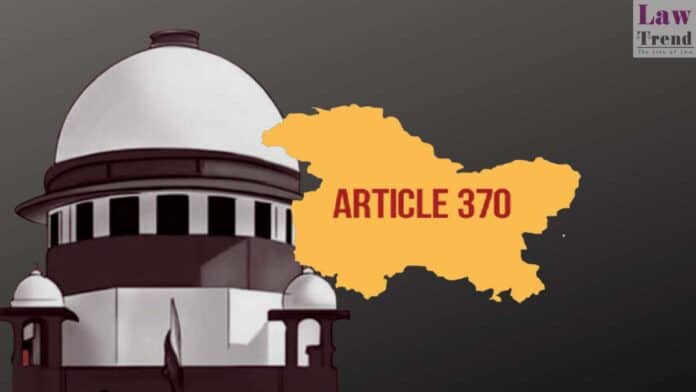Following are the highlights of the judgement pronounced by a five-judge constitution bench of the Supreme Court that on Monday unanimously upheld the Centre’s decision to abrogate provisions of Article 370 of the Constitution bestowing special status on the erstwhile state of Jammu and Kashmir.
* CJI D Y Chandrachud, Justice Sanjay Kishan Kaul and Justice Sanjiv Khanna wrote separate concurring verdicts.
* SC held that Article 370 was a “temporary provision”.

* CJI Chandrachud, writing for himself and Justices B R Gavai and Surya Kant, said the state of Jammu and Kashmir does not have “internal sovereignty” which is distinguishable from the powers and privileges enjoyed by other states in the country.
* SC said restoration of statehood of Jammu and Kashmir shall take place at the earliest and as soon as possible.
* SC directed Election Commission to take steps to conduct elections to the Legislative Assembly of Jammu and Kashmir by September 30, 2024.
* SC upheld the validity of the decision to carve out the union territory of Ladakh.
* SC said the President has the power to issue a notification declaring that Article 370(3) ceases to operate without the recommendation of the Constituent Assembly.
* SC said Article 370 was a feature of asymmetric federalism and not sovereignty.
* CJI Chandrachud said any interpretation of Article 370 cannot postulate that the integration of Jammu and Kashmir with India was temporary.
* Justice Kaul recommended setting up an “impartial truth and reconciliation commission” to probe and report on human rights violations by both state and non-state actors in Jammu and Kashmir since the 1980s, saying the “wounds need healing”.
* It was not a “voluntary migration”, Justice Kaul said while referring to the “troubled situation” at the ground level in the Kashmir valley in the 1980s which triggered the exodus of Kashmiri Pandits.
* Justice Kaul said the mass exodus of the Kashmiri Pandit community changed the very cultural ethos of Kashmir and there has been little turn back despite three decades having gone by since it was triggered by growing fundamentalism fuelled from across the border.
* SC said though democracy and federalism are basic features of the Constitution, there are certain “unitary” characteristics in the constitutional structure which provide overriding powers to the Centre, including the formation of union territories.







